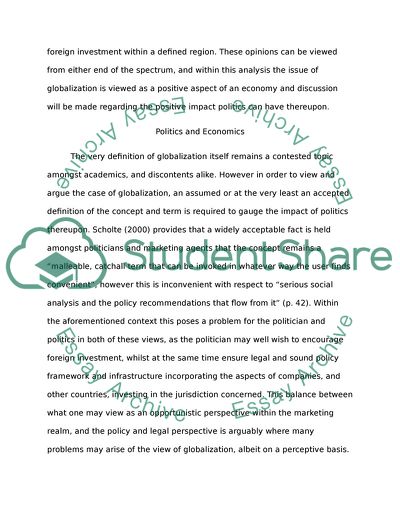Cite this document
(Globalization and Politics Coursework Example | Topics and Well Written Essays - 2250 words, n.d.)
Globalization and Politics Coursework Example | Topics and Well Written Essays - 2250 words. https://studentshare.org/geography/1741808-how-important-is-politics-in-shaping-the-progress-of-globalisation
Globalization and Politics Coursework Example | Topics and Well Written Essays - 2250 words. https://studentshare.org/geography/1741808-how-important-is-politics-in-shaping-the-progress-of-globalisation
(Globalization and Politics Coursework Example | Topics and Well Written Essays - 2250 Words)
Globalization and Politics Coursework Example | Topics and Well Written Essays - 2250 Words. https://studentshare.org/geography/1741808-how-important-is-politics-in-shaping-the-progress-of-globalisation.
Globalization and Politics Coursework Example | Topics and Well Written Essays - 2250 Words. https://studentshare.org/geography/1741808-how-important-is-politics-in-shaping-the-progress-of-globalisation.
“Globalization and Politics Coursework Example | Topics and Well Written Essays - 2250 Words”. https://studentshare.org/geography/1741808-how-important-is-politics-in-shaping-the-progress-of-globalisation.


